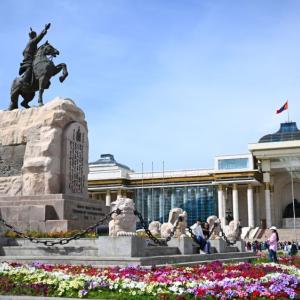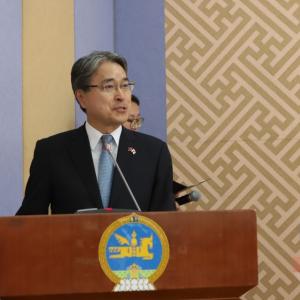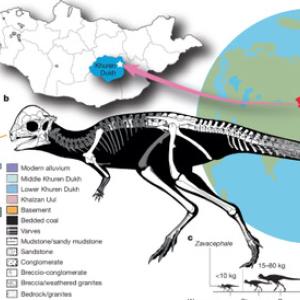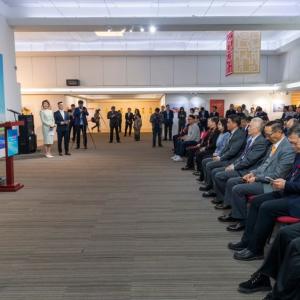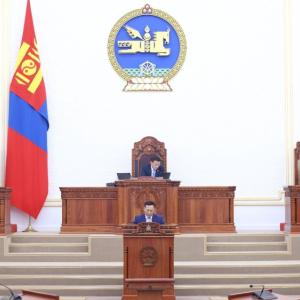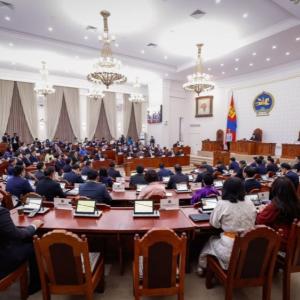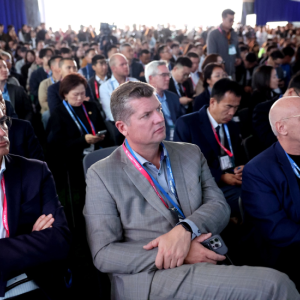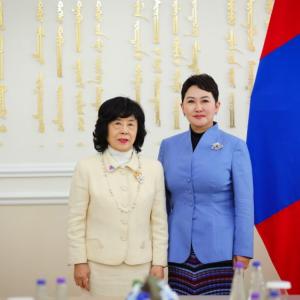World Bank report: Further reforms are key to strengthening Mongolia’s civil service
Society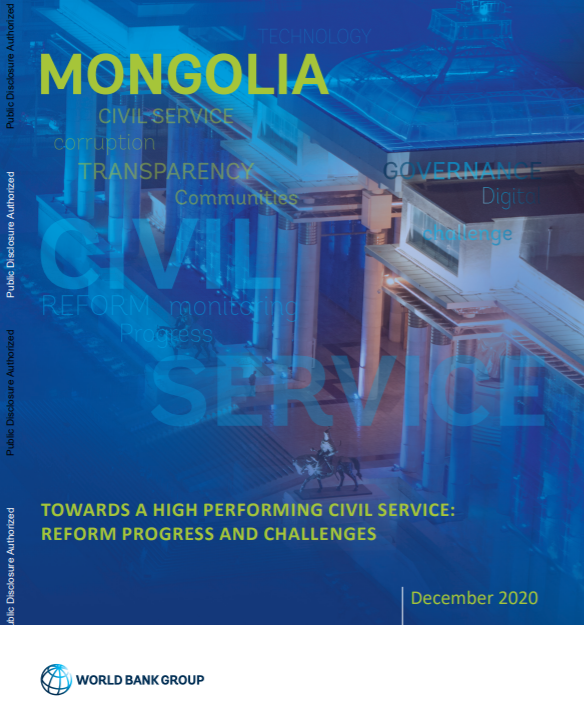
Ulaanbaatar, January 28, 2021 – Mongolia’s new Civil Service Law is an important step toward building a stronger civil service that is merit-based and politically neutral, but further reforms are needed, according to a new World Bank report.
The report, Towards a High Performing Civil Service: Reform Progress and Challenges, calls on the country to strengthen the stability, oversight, and management of its civil service to help achieve development objectives. It highlights the latest Civil Service Law, which re-establishes the principles of meritocracy and a career-based model, as a major step toward building a better-performing and ethical civil service.
“With stronger legal foundations in place, Mongolia is now better placed to move forward to improve the efficiency and effectiveness of its civil service. This will require determined leadership to make important strategic and technical decisions to curb politicization and reassert professionalism in the civil service,” said Andrei Mikhnev, World Bank Country Manager for Mongolia.
Mongolia’s annual attrition rate in the civil service increased from around 9% in the 2009-2012 period to more than 22% in 2019. Frequent changes of government, together with high staff turnover due to the lack of a meritocratic system, has negatively affected the civil service’s overall capacity to deliver public goods and services efficiently.
The recent revision of the legal framework, with a heavy emphasis on the prevention and reversal of politicization, will be a crucial step in addressing these challenges, according to the report. Once the foundations of merit-based principles are firmer, some flexibility can be reintroduced in the medium to long-term, so the civil service cadre will be able to respond effectively to the demands of politically appointed ministers to the extent appropriate, while being both professionally competent and sufficiently impartial to serve successive governments of different political complexion.
The report notes that the the hybrid role of the Civil Service Council (CSC) as both a supervisor and an implementer could create a conflict of interest, and calls for a review of the institutional mechanisms for managing and supervising the civil service at all levels.
“Once the principle of a merit-based career civil service has been re-established in Mongolia, the Civil Service Council can work in cooperation with the executive government to delegate personnel management responsibilities to ministries, departments, agencies, and local authorities. This will allow the CSC to transition to a more conventional oversight body,” said Alma Kanani, World Bank Governance Practice Manager for East Asia and the Pacific.
The report emphasizes that the professional status of the civil service must be protected through the reinvigorated entrance examination, which allows access only to those, who meet strict professional requirements and in return are obliged to deliver a high standard of service to the public. The successful implementation of the new performance planning system as well as training for civil servants are key to this professionalization.
The report also notes that the number of civil servants has grown by 34% over the past decade (2009-2019). While the associated wage bill is not particularly high relative to international comparators, it is the fastest growing and largest component of recurrent government expenditures. The report argues that increasing staff is not the solution to meeting the demand for services given the country’s geographic characteristics. Instead, more effective management of existing staff through envisioned reforms would be essential to improving productivity and providing better service delivery.
There has been a long-standing need for reform of the pay and grading structure in the civil service, the report notes. The highly fragmented nature of the payroll has prevented the government from obtaining and analyzing data necessary for the reform. Recent and ongoing efforts by the Ministry of Finance to introduce an Integrated Payroll System are to be commended as a major step in addressing the challenge toward establishing a new human resource management information system that uses comprehensive and consistent personnel data.
The report also highlights the need for the civil service to have appropriate incentives for recruiting, retaining, and motivating skilled staff, in particular, through the principle of equal pay for equal work. This will require simplifying the pay system by merging allowances into basic pay, simplifying the grading structure, and benchmarking pay.
Taken together, the recommended actions for the civil service reform constitute a large program of change, the report acknowledges. The enactment of the new Civil Service Law has already committed the Mongolian government to much of this agenda, but further reforms and their effective implementation would be critical to success. In this regard, the World Bank will continue its support to the government towards strengthening its civil service and public sector performance and accountability for increased people’s trust in the government.

 Ulaanbaatar
Ulaanbaatar
